How Warren Buffett's latest stock picks are setting him up for 2022
Don't deny it. Everyone loves a pry into the trades of the rich and famous. Just see how many people enjoy the AFR's Rich List (or indeed, The Australian's equivalent). Luxury business stories are constant features in weekend newspapers.
Then, there's the sports business page. Who knew that a Los-Angeles based private equity firm (ClearLake Capital) had the appetite to pay £4 billion-plus ($8 billion+) for one of the English Premier League's best-known football teams, Chelsea?
Then, there are the trades of the rich and famous. This week, we're taking a look at the investments made by the world's most successful investors. With fears of recession abound and markets sliding, these professionals have been putting their cash to work.
But how are they doing? We'll be featuring these investors:
- Carl Icahn
- Bill Ackman
- Cathie Wood
- and today's featured investor - Warren Buffett
To do this, we're going to take a deep dive into the wonderful world of 13F statements and this website as our reference for all trades and percentage changes.
What are 13F statements?
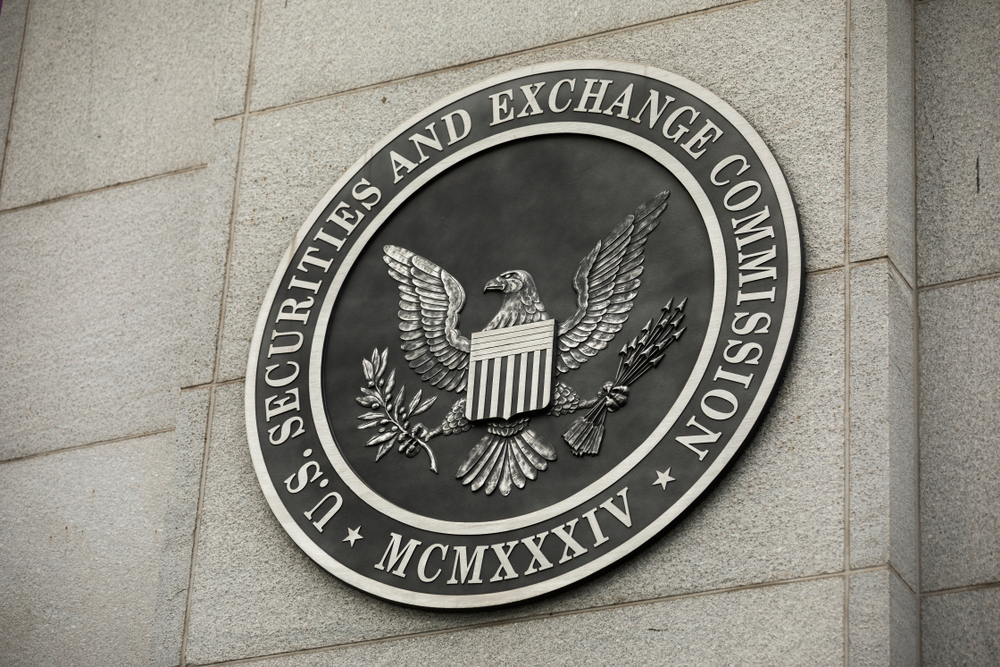
13F statements are quarterly reports that are required to be filed by all institutional investment managers with at least $100 million in assets under management. It discloses their equity holdings and can provide insights into what the smart money is doing in the market. It's a strictly US term because it's required by the SEC.
The best part (for us at least) is that all the information is public. One key thing to note - short positions are not required to be disclosed on the form.
In some ways, that means we'll never know the true scope of an investment manager's thinking. Luckily, for our first headliner of this series, short positions are not something he is necessarily known for.
A man who needs no introduction: Warren Edward Buffett
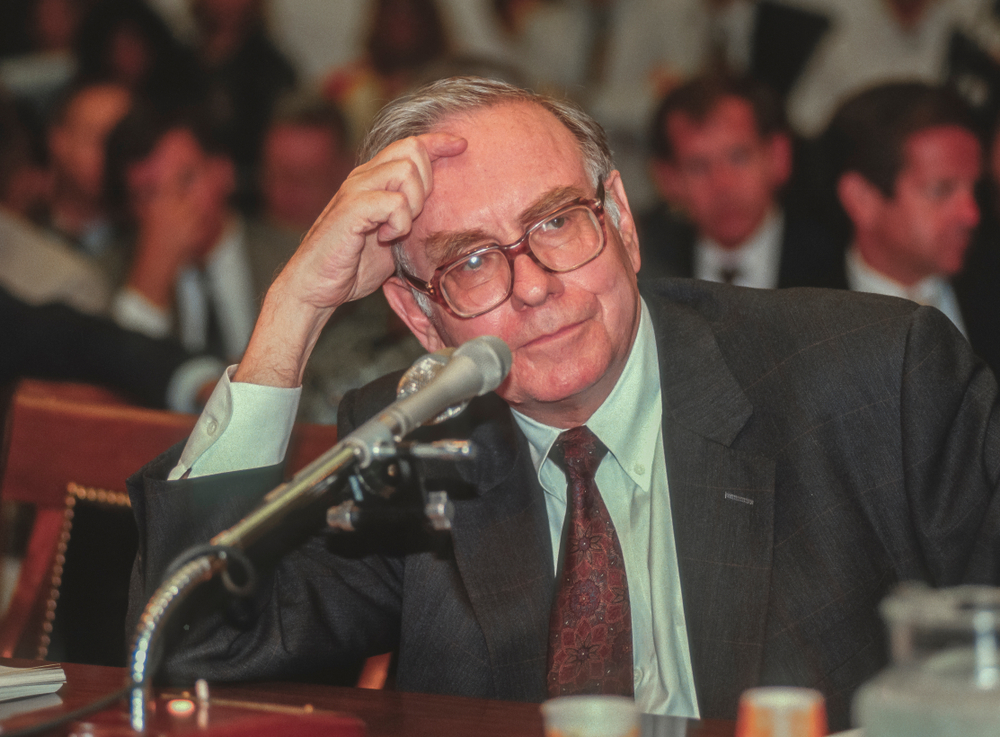
When you ask professional investors whose model they would like to emulate most, chances are that they will likely refer to the top duo in investing - Berkshire Hathaway's Warren Buffett and Charlie Munger.
Once a student at the famous Wharton Business School, he went on to graduate from Columbia Business School where he moulded his investment philosophy.
In 1956, he created Buffett Partnership, Ltd and his firm eventually acquired a textile manufacturing firm called Berkshire Hathaway. That name would eventually become the title of the whole holding company. He's been the company's largest shareholder since 1970.
Buffett's trades are few in number - hence why every time Berkshire Hathaway comes upon a company's new trades list, everyone takes notice.
In the first quarter, he made eight new investments - one of his most active in many decades. Let's take a look at each of them.

The trade that paid: Occidental Petroleum (NYSE:OXY)
Buffett invested US$7.7 million in the oil and gas explorer. As of the most recent 13F filing, Berkshire now owns 15% of the company with the most recent purchase being an extra 900,000 shares.
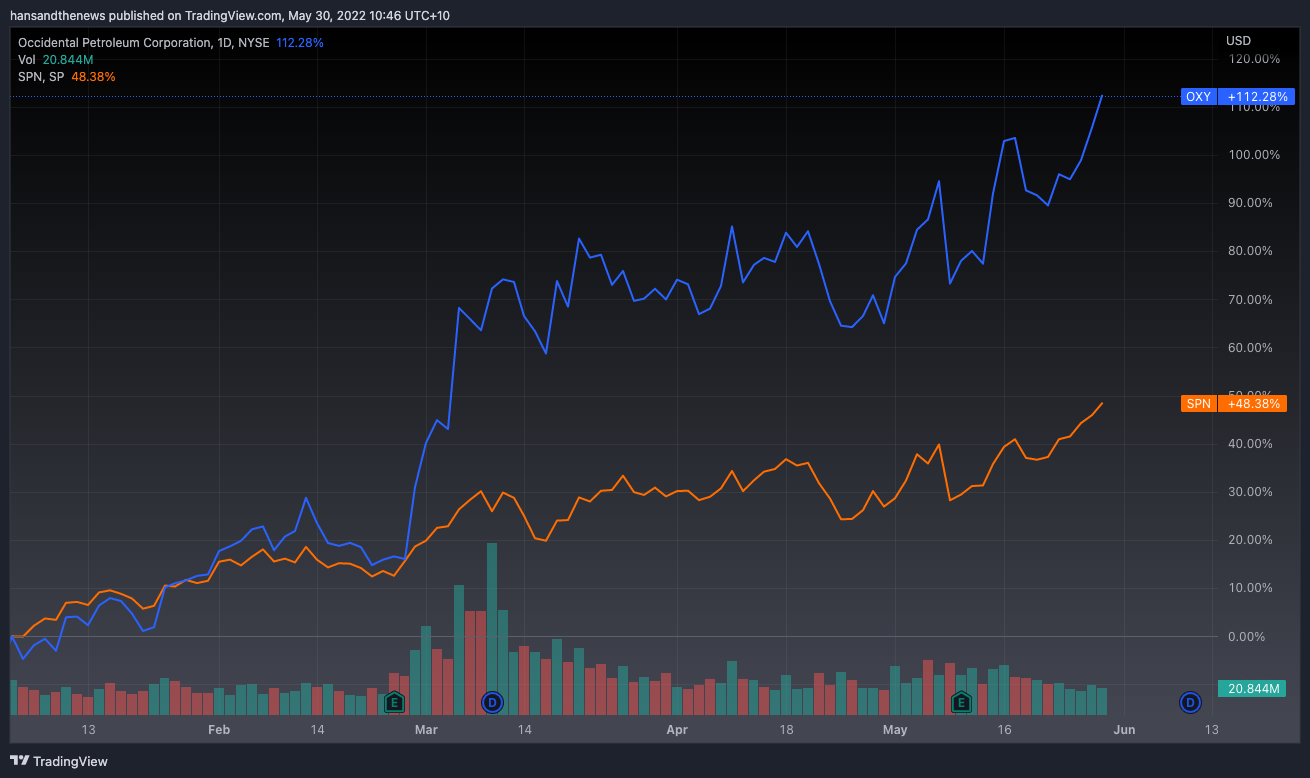
His trade was handsomely rewarded given the sharp rise in oil prices because of the war in Ukraine. Realised oil prices soared more than 65% - leading to profits of US$4.7 billion. Since January, its share price has more than doubled to US$70.86 (as of May 30th, pre-open).
The only issue for analysts will be if Occidental can keep the momentum up for the second quarter and beyond.
Two of his favourite financials: Citigroup (NYSE:C) and Ally Financial (NYSE:ALLY)
Ally and Citigroup represent two of Buffett's long-time favourite investment thematics. The latter is probably the more headline-grabbing trade.
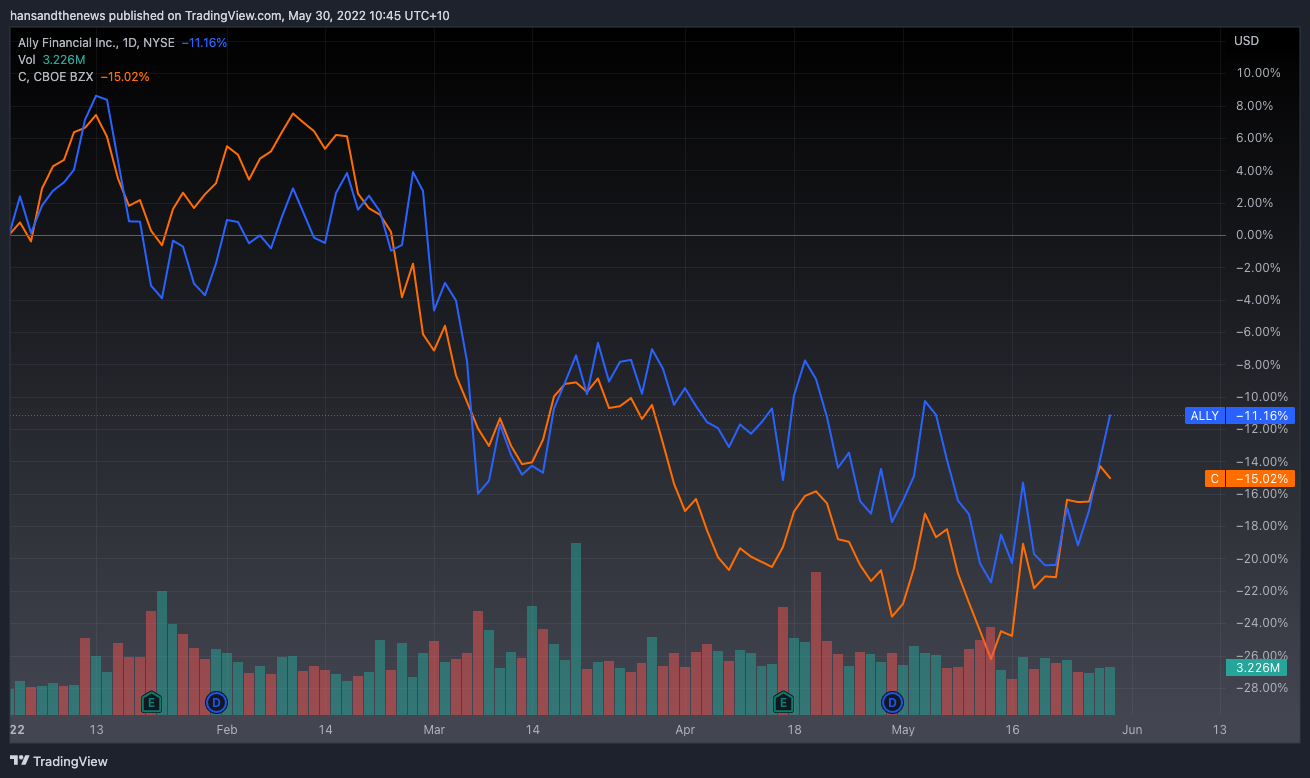
This isn't just because of Citigroup's size in terms of market capitalisation but also because, in order to make that trade, Buffett sold out his stake in Wells Fargo. Berkshire had a holding in Wells Fargo of some form since 1989.
The Ally/Citi trades add to Buffett's long-time holdings in American Express, Bank of America, and insurer Geico (of which Berkshire Hathaway is the owner).
Speaking of insurers, he also made a recent half-billion-dollar investment in Markel, which has been dubbed by some analysts as a "baby Berkshire" given it runs its own in-house investment operations. The funniest part is that Berkshire is also one of Markel's top holdings.
A tech trade to complement Apple: HP (NYSE:HPQ)
Some have called this trade reminiscent of his IBM bet but others have noted this might be a genius move. Buffett started to accumulate Apple shares in 2016 - now, it's the highest single position in his portfolio. It's also held up relatively well in the tech carnage of early 2022.
Now, he's after HP in a move that has already made him the company's largest shareholder. In part, a P/E ratio of under seven for a tech company is quite remarkable. Others point to the fact the company has a history of providing earnings surprises (in the last two years, HP has beaten the street's consensus earnings estimate every single quarter).
Finally, the argument can be made that it's a relatively "simple" tech business. Buffett was said to have invested in Apple because it had an understandable tech model. It makes software and hardware products that create a circular operating system. In a similar vein, HP makes personal computers with printers/other devices that help make up its equivalent of a circular operating system. Hence, Buffett's interest.
The other trades: McKesson (NYSE:MCK), Celanese (NYSE:CE), and Paramount Global (NAS:PARA)
Healthcare, industrials, and entertainment each score one point on Buffett's new trades scoreboard. In the last quarter, Buffett sold out his stakes in a range of big pharmaceutical names including Bristol-Myers Squibb, Merck, Teva Pharmaceuticals, and Biogen.
This time, he's made just one bet on McKesson. The company is a pharmaceutical distributor and also provides health information technology, medical supplies, and care management tools. It's also not the cheapest buy of all time with a P/E ratio of above 46.
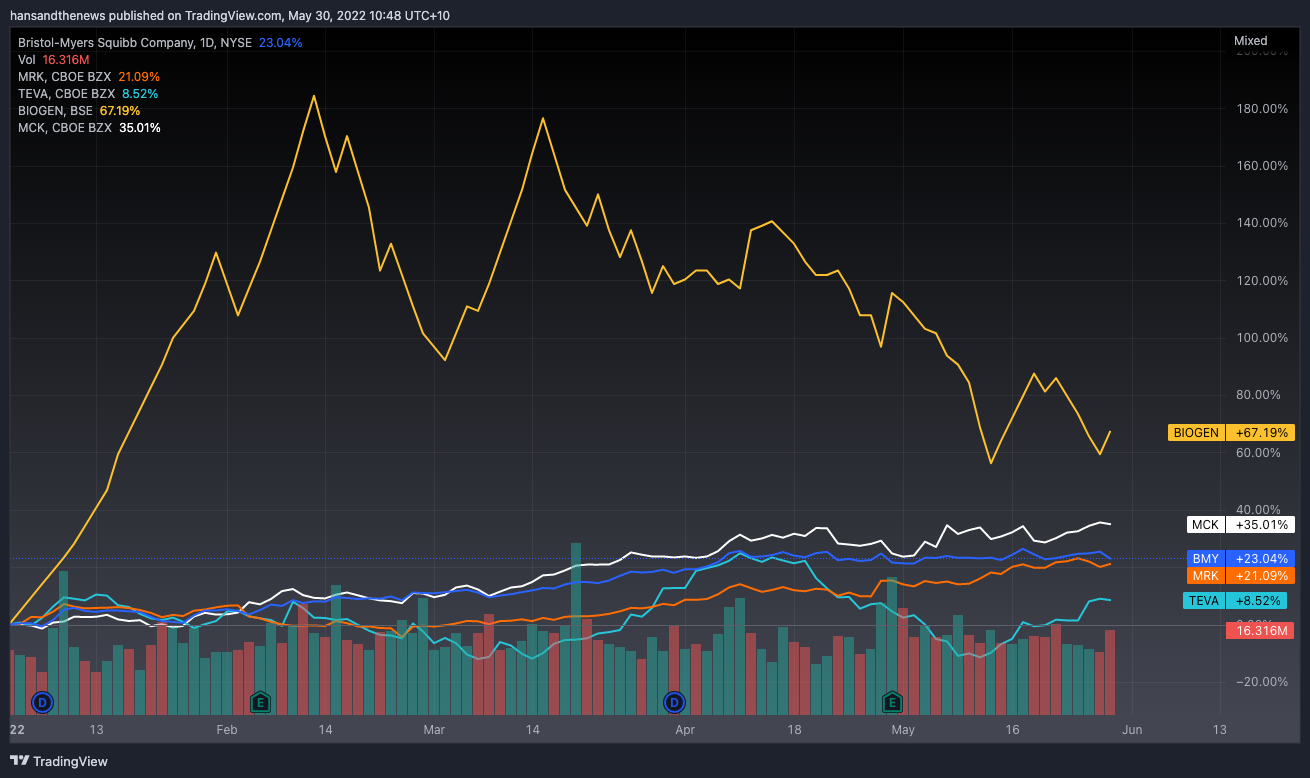
Materials firm Celanese also received a billion-dollar-plus bet from Buffett. It has a range of customers in industrial-type businesses and recently signed an agreement with a majority of Dupont's materials arm. Sales and profits both soared in the first quarter, with upside earnings surprises a feature of this company as well.
Finally, a one-for-one trade in the entertainment industry. Buffett sold his stake in radio operator SiriusXM and exchanged it for a US$2.6 billion stake in Paramount Global. Perhaps, it's a contrarian bet on the streaming game?
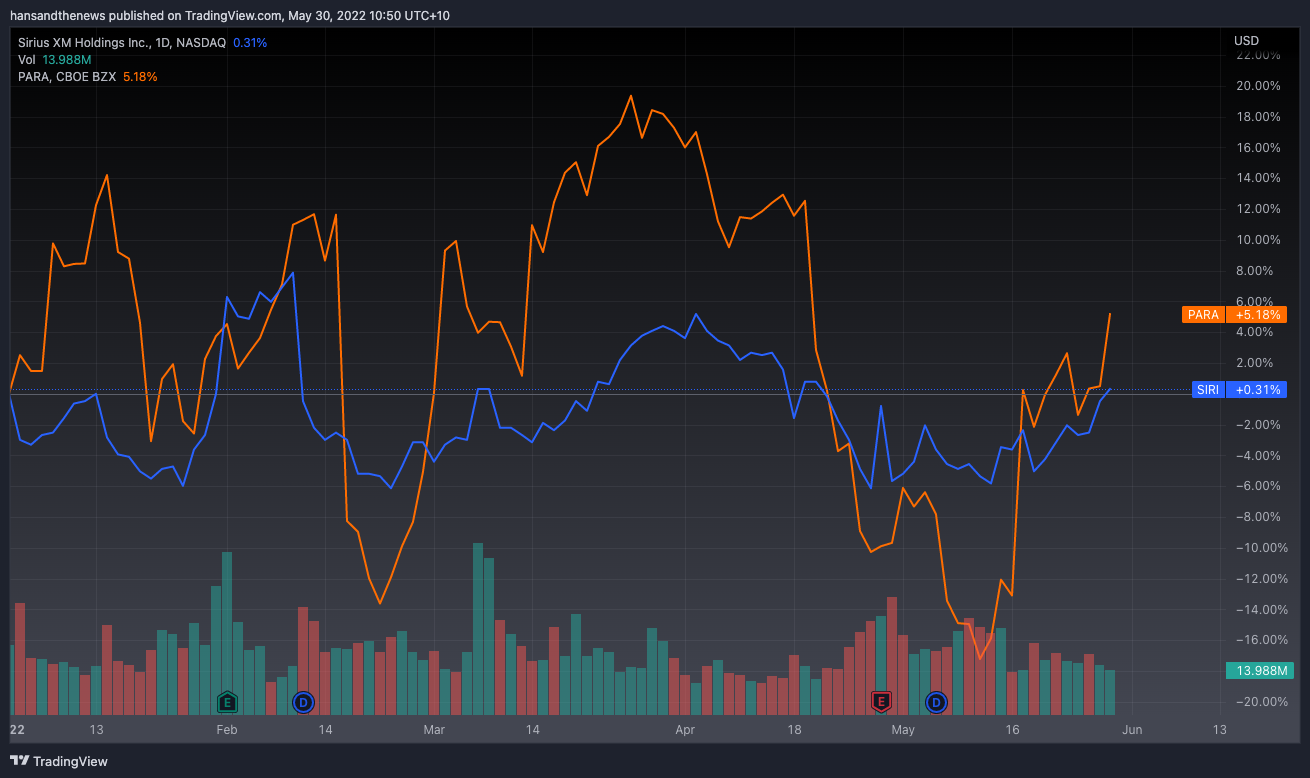
The crunch
For this series, we'll replace our conclusion with 'the crunch'. It's one thing to make those investments but it's the returns that matter the most.
Quarter-on-quarter, Buffett made an extra $33 million, and year on year, he is up more than $93 million.
Conclusion? Stay invested and be greedy when others are fearful!
4 topics
4 stocks mentioned

